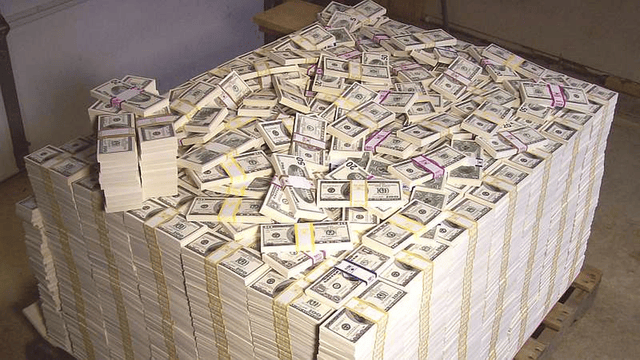Barack Obama-Iranian Ransom Scandal (2016)

Barack Obama-Iranian Ransom Scandal (2016)

The Barack Obama administration secretly organized the transfer of $400 million dollars in foreign currency to the government of Iran on January 17, 2016.
The same day the United States freed seven detained Iranian nationals in exchange for the freedom of four American nationals who had been detained.
The Barack Obama administration denied any link between the payment and the prisoner exchange.
They say the way the various strands came together simultaneously was coincidental, not the result of any quid pro quo.
The payment was the first installment of a $1.7 billion settlement the Obama administration reached with Iran to resolve a decades-old dispute over a failed arms deal signed just before the 1979 fall of Iran’s last monarch, Shah Mohammad Reza Pahlavi in the Iranian Revolution.
The Iranians were demanding the return of $400 million the Shah’s regime deposited into a Pentagon trust fund in 1979 to purchase U.S. fighter jets, U.S. officials said.
They originally demanded $10 billion dollars to compensate for the original $400 million and the interest accrued since then.
The settlement, resolved claims before an international Hague Tribunal, and coincided with the completion of the Iran nuclear deal framework.
Obama Administration Response
Statment by State Department spokesman John Kirby:
“As we’ve made clear, the negotiations over the settlement of an outstanding claim…were completely separate from the discussions about returning our American citizens home,” and “Not only were the two negotiations separate, they were conducted by different teams on each side, including, in the case of The Hague claims, by technical experts involved in these negotiations for many years.”
Although the Barack Obama administration denied any link between the payment and the prisoner exchange they said that Iranian negotiators on the prisoner exchange wanted the cash as a tangible gain.
Revolutionary Guard commanders boasted at the time that the Americans had succumbed to Iranian pressure.
“Taking this much money back was in return for the release of the American spies,” said Gen. Mohammad Reza Naghdi, commander of the Guard’s Basij militia, on state media.
Logistics
Secretary of State, John Kerry, State and Treasury departments worked with the Swiss and Dutch central banks to procure $400 million USD of Francs and Euros.
The money was then, stacked onto the wooden pallets and sent to Iran on board a unmarked cargo plane.
On the morning of Jan. 17, Iran released the four Americans: Three of them boarded a Swiss Air Force jet and flew off to Geneva with the fourth returning to the U.S. on his own.
In return, the U.S. freed seven Iranian citizens and dropped extradition requests for 14 others.
U.S. and European officials wouldn’t disclose exactly when the plane carrying the $400 million landed in Iran.
But a report by an Iranian news site close to the Revolutionary Guard, the Tasnim agency, said the cash arrived in Tehran’s Mehrabad airport on the same day the Americans departed.
The $400 million was paid in foreign currency because any transaction with Iran in U.S. dollars is illegal under U.S. law.
Sanctions also complicate Tehran’s access to global banks.
“Sometimes the Iranians want cash because it’s so hard for them to access things in the international financial system,” said a senior U.S. official briefed on the January cash delivery.
“They know it can take months just to figure out how to wire money from one place to another.”
Criticism
Tom Cotton a Republican senator from Arkansas, accused Barack Obama of paying “a $1.7 billion ransom to the ayatollahs for U.S. hostages.”
“This break with longstanding U.S. policy put a price on the head of Americans, and has led Iran to continue its illegal seizures” of Americans, he said.
Since the cash shipment, the intelligence arm of the Revolutionary Guard has arrested two more Iranian-Americans.
Tehran has also detained dual-nationals from France, Canada and the U.K. in recent months.
Mark Kirk a junior Republican senator from Illinois said:
"Paying ransom to kidnappers puts Americans even more at risk."
and "While Americans were relieved by Iran’s overdue release of illegally imprisoned American hostages, the White House’s policy of appeasement has led Iran to illegally seize more American hostages."
A group of Republicans have now called for an inquiry on the transfer of cash.